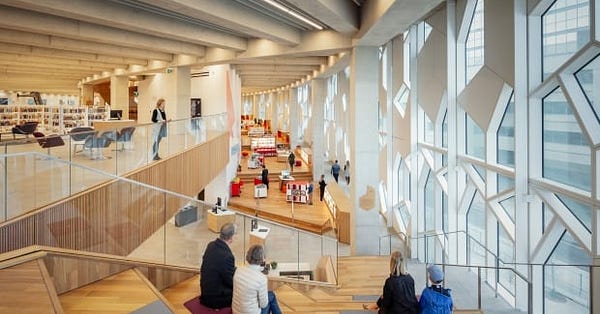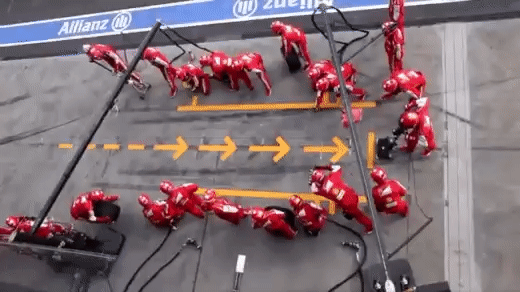The Department of Morale
Loss Leader #10: Ernie Pyle, the Ministry of Information and some paddleboarding dinosaurs.

“Morale may seem like a little thing, yet it determines the shape of battles and the fate of nations.”
How do we not give up?
Almost every conversation I have had over the last two weeks has touched on the issue of declining mental health. How people are feeling, what they are worried about, the long dark days ahead that loom without any indication of where the light will come in. And the knowledge, among this tough, privileged, rapidly unwinding sample, that there are so many more for whom the cracks run deeper, and for whom foundational supports are not as strong.
It is easy to feel ourselves weaken, and to predict the corresponding collapse if we all let our knees buckle.
But you know what? This is not our weakness.
The quote above is from Ernie Pyle, a famous war correspondent who embedded at the front lines with the American troops in WW2 and is pictured below, bumming a light in the trenches. Like few others, he saw the direct line between morale and survival, and said “I’ve been around war long enough to know that nine-tenths of morale is pride in your outfit and confidence in your leaders and fellow fighters.”

We are witnessing a decline in morale in certain Covid jurisdictions, not due to a lack in our individual strength but due to the weakness of leadership on display.
People - whether they are your citizens or your employees - are not stupid, or lazy, or defeatist. If their morale is low, there is a cause.
This was understood by propaganda efforts during the World War, and I’ve drawn some lessons that are applicable in the fight against Covid, which requires the alignment and motivation of the troops to propel and achieve our national interests.
Differentiate between defeatism and disillusionment
In March, British historian Jonathan Boff talked about how ordinary people coped with the challenges of the world wars and pointed out that it was then accepted by government that anger towards leadership would be counter-productive, and good information was the salve. They understood that they must prevent disillusionment, not defeatism, and resisted the impulse towards condescension.
Inform, don’t sloganize
The British war effort involved a Ministry of Information, tasked to track domestic morale and help maintain support at home and abroad. This work centred on the insight that people can take bad news, but won’t abide a lack of information. Brendan Bracken, a confidante of Winston Churchill and Minister of Information, called WW2 the people’s war – because without them and their spirit he knew they could not win.
Interestingly, one of the top lieutenants in the Ministry was a former newspaper editor, who pointed out that “details kill the public distrust of vague announcements”.
I will be emailing that line to every Public Health official I know.
Conscription builds armies
The British war effort also understood that part of what people want to see from their leaders was an effort to bring others into the deployment of solutions. When the Blitz began in 1940, huge numbers of voluntary organizations like the St John’s Ambulance and Red Cross were directly involved in the relief effort.
In Ontario, growing frustration with the Covid response involves a feeling that government is not adequately sourcing or encouraging outside action: they are flailing in isolation and not creating the conditions for problem solvers to flourish or armies to be mobilized.
When it comes to addressing the looming crisis of Covid propelled mental health impacts, governments would do well to actively conscript (and fund) others into the cause. Organizations, employers, institutions should be vocally conscripted into the cause of preparing for the long winter of our souls, and efforts should be mobilized to take care of those we know in our orbit who are most at risk. This should be a national call to arms.


Hope and Glory
I vividly remember the scene in Hope and Glory of small children playing amid the wreckage of bombed out London buildings.
Moments of joy, of play, of delight, of communion are necessary for the soul to endure.
People are not angry that their kids won’t get mini Coffee Crisps they can steal on Halloween or be able to jump up and down on trampolines at gymnastic classes, they are frustrated by the fact that the collective need to safely engage, exercise and enjoy is being neglected, because they know it will accelerate our decline.
Government needs to prioritize the availability of safe avenues for delight.

Invest and implement
This is less a WW2 insight than just the constant refrain of my professional career: you can’t just talk, you have to do.
Everyone knows that mental health is a looming disaster that will take lives. There are countries that are deploying emergency funding directly into mental health initiatives, and corporations and non profits that are doing the same.
“There is a huge concern that as hospital wards begin to fill again and Covid takes priority, patients with severe mental health will suffer,” said Geoff Hayes, whose intriguing title is the Head of Health Policy and Influencing at the mental health charity Mind. “This is an opportunity for the government to look at this relatively small group of people we know are highly vulnerable and provide a package of care for them.”
So rally the troops people and sound the sirens, we’re shaping the fate of a nation.
Building Consensus (algorithms)
Without good leadership, it’s easy to believe that the current state is the only way things can be.
The best example of this is the current majority of our political discourse, which has been conditioned by social media platforms incentivized to push people towards extremes. And so we forget that consensus not only remains possible, but continues to occur outside of our focus.
This week, two Utah politicians decided to re-centre a different approach, appearing in a political advertisement together, even as they ran against one another.


Similarly, Seattle, WA, based company Polis has built an interesting model that uses algorithms to identify points of consensus in public debate, and helps clients move forward with new policies by identifying and building around opportunities for agreement.
The AI-powered platform asks a question of participants and then uncover realtime patterns in the responses and surfaces areas of consensus.
In both of these cases, it is fascinating to note that the leadership being demonstrated is simply just taking us back to an older way of doing things, differently incentivized.
Turning up the mic on the shittiest take is a choice, not a default setting, and it costs us more than it earns. Let’s not forget that.
When Process is the Problem
In the UK, the city of Bristol used to see a lot of people dying after heart surgery. After reviewing all the cases, they identified a surprising risk factor: the trip from the operating room to the intensive care unit.
Something was happening during this handover that was putting people’s lives in danger, and it had nothing to do with the patients themselves.
So what did the doctors do? They went to a Formula One race and watched the pit teams tasked with changing tires and fuelling the car in seconds flat.


Like a surgical team of doctors, nurses and anesthetists, pit crews have to do a lot very quickly and very safely. Process is the top priority.
The doctors then videotaped their own handover in the surgery process and sent it to the Ferrari Formula One team, who offered an analysis that helped creat a new hospital protocol based on more choreographed team work.
To get to this improvement, those involved had to demonstrate two characteristics that are sometimes hard for leaders to muster: open-mindedness and humility. The doctors were not only receptive to the idea that they might be the cause of the problem, but they also recognized that there might be people equipped with better expertise to design the solution.
Quick Leads
Minute morale boosters for your soul:
I love it when progressive policy and brand strategy come together. Canada Goose is building outside time into its employees’ compensated workday, something more companies should think about as we approach the long winter months.
Making people feel good in the morning has a measurable impact on productivity and mental health, so let’s hear it for this guy:
And sometimes morale can be improved just by giving people an unexpected laugh, where they least expect it.
 People in Toronto keep dressing up in costumes to paddleboard on Lake Ontario bit.ly/37lArnp #Toronto #LakeOntario #Halloween
People in Toronto keep dressing up in costumes to paddleboard on Lake Ontario bit.ly/37lArnp #Toronto #LakeOntario #Halloween








